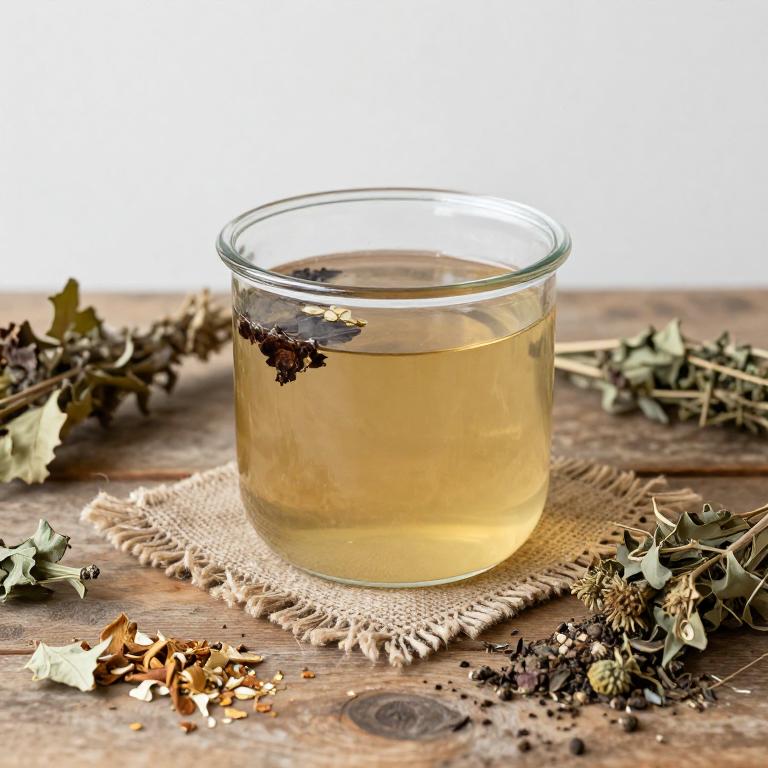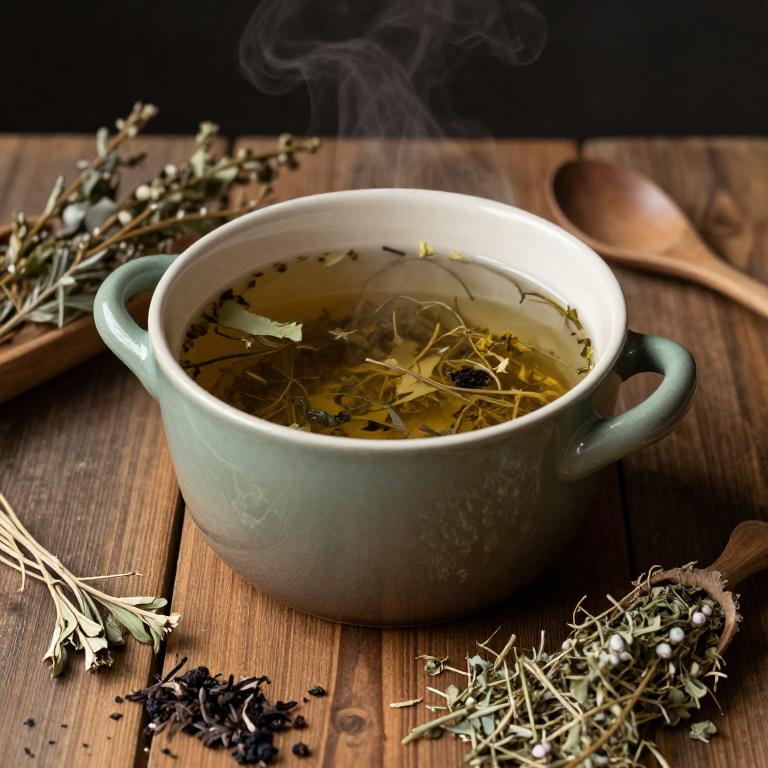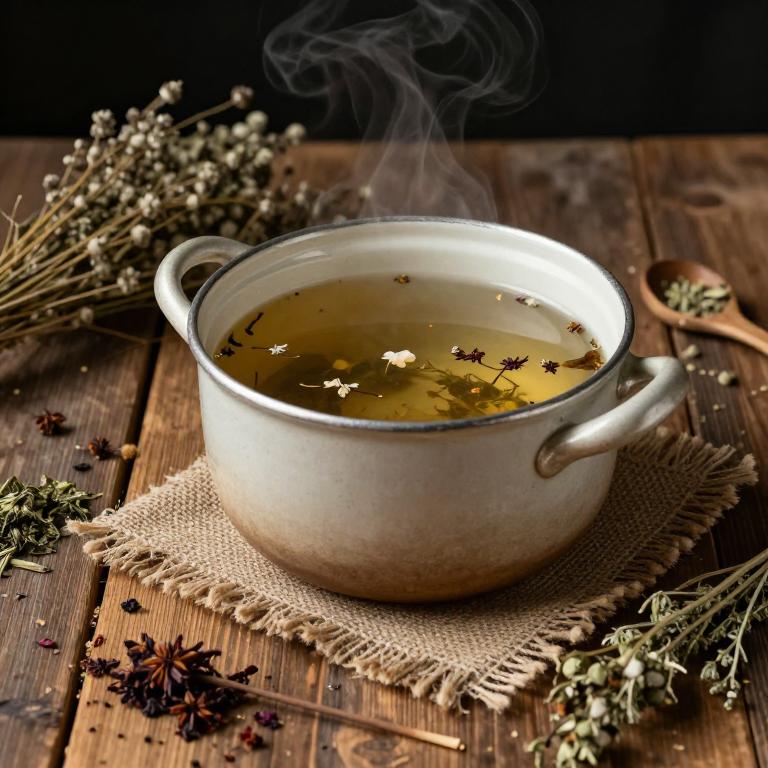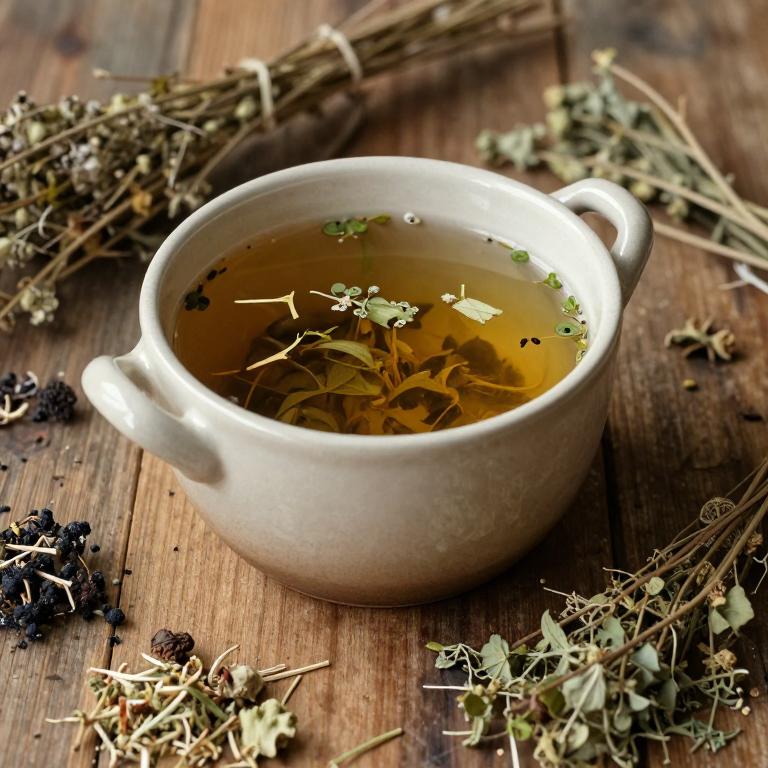10 Best Herbal Decoctions For Flatulence

Herbal decoctions have long been used in traditional medicine to alleviate symptoms of flatulence by promoting digestion and reducing gas buildup in the gastrointestinal tract.
Common herbs such as ginger, fennel, peppermint, and licorice are often included in these decoctions due to their carminative and antispasmodic properties. To prepare a decoction, these herbs are typically simmered in water for an extended period to extract their active compounds. Drinking the resulting liquid after meals can help soothe the digestive system and ease bloating.
While generally safe, it is advisable to consult a healthcare professional before using herbal remedies, especially for individuals with existing health conditions or those taking medications.
Table of Contents
- 1. Fennel (Foeniculum vulgare)
- 2. Cumin (Cuminum cyminum)
- 3. Anise (Pimpinella anisum)
- 4. Peppermint (Mentha piperita)
- 5. Caraway (Carum carvi)
- 6. English lavender (Lavandula angustifolia)
- 7. Dog rose (Rosa canina)
- 8. Stinging nettle (Urtica dioica)
- 9. Ginger (Zingiber officinale)
- 10. Cilantro (Coriandrum sativum)
1. Fennel (Foeniculum vulgare)

Foeniculum vulgare, commonly known as fennel, is widely used in herbal medicine for its digestive benefits, particularly in alleviating flatulence.
A decoction of fennel seeds is prepared by simmering the dried seeds in water for several minutes, allowing the essential oils and active compounds to infuse into the liquid. This herbal remedy works by relaxing the smooth muscles of the gastrointestinal tract, reducing gas buildup and bloating. The active components, such as anethol and fenchone, possess carminative properties that help expel trapped air from the stomach and intestines.
Regular consumption of fennel decoctions can provide relief from excessive flatulence and promote overall digestive comfort.
2. Cumin (Cuminum cyminum)

Cuminum cyminum, commonly known as cumin, has been traditionally used in herbal medicine for its digestive benefits, particularly in alleviating flatulence.
The seeds of cumin contain compounds such as thymol and carvacrol, which possess carminative properties that help reduce gas buildup in the gastrointestinal tract. To prepare a herbal decoction, the dried cumin seeds are typically simmered in water for several minutes, allowing the active compounds to be extracted into the liquid. This decoction can be consumed after meals to aid digestion and ease bloating.
Due to its mild and pleasant aroma, cumin-based decoctions are often well-tolerated and can be a natural alternative to over-the-counter remedies for gas.
3. Anise (Pimpinella anisum)

Pimpinella anisum, commonly known as anise, has been traditionally used in herbal medicine for its digestive benefits, particularly in the treatment of flatulence.
The seeds of this plant contain compounds such as anethole, which have mild carminative properties that help to relieve gas and bloating in the gastrointestinal tract. A herbal decoction made from anise seeds can be prepared by simmering the dried seeds in water for several minutes, allowing the active components to infuse into the liquid. This decoction is often consumed after meals to aid digestion and reduce the discomfort associated with excessive gas.
Due to its soothing effects, anise decoctions are considered a natural and gentle remedy for managing flatulence and other digestive ailments.
4. Peppermint (Mentha piperita)

Mentha piperita, commonly known as peppermint, has been traditionally used in herbal medicine to alleviate symptoms of flatulence.
Peppermint herbal decoctions work by relaxing the smooth muscles of the gastrointestinal tract, which can reduce the sensation of bloating and discomfort caused by gas. The active compounds in peppermint, such as menthol and methyl salicylate, have antispasmodic and carminative properties that help expel trapped gas from the digestive system. These decoctions are often prepared by steeping dried peppermint leaves in hot water for several minutes.
While generally safe, peppermint may interact with certain medications, so it is advisable to consult a healthcare provider before use, especially for individuals with gastrointestinal disorders.
5. Caraway (Carum carvi)

Carum carvi, commonly known as caraway, has been traditionally used in herbal medicine to address digestive issues, including flatulence.
Its essential oils, particularly limonene and alpha-pinene, are believed to help relax the gastrointestinal tract and reduce gas buildup. A caraway herbal decoction is typically prepared by steeping the dried seeds in hot water for several minutes, allowing the active compounds to infuse into the liquid. This decoction can be consumed after meals to aid digestion and alleviate bloating.
While generally considered safe, it is advisable to consult a healthcare professional before using caraway, especially for individuals with existing medical conditions or those taking medications.
6. English lavender (Lavandula angustifolia)

Lavandula angustifolia, commonly known as English lavender, has been traditionally used in herbal medicine for its calming and digestive properties.
Herbal decoctions made from lavender can help alleviate symptoms of flatulence by promoting the release of trapped gases in the digestive tract. The essential oils in lavender, such as linalool and linalyl acetate, have antispasmodic and carminative effects that soothe gastrointestinal discomfort. To prepare a lavender decoction, dried lavender flowers are simmered in water for about 10 to 15 minutes, then strained and consumed warm.
This natural remedy is often used as a complementary therapy to support digestive health and reduce bloating.
7. Dog rose (Rosa canina)

Rosa canina, commonly known as dog rose, has been traditionally used in herbal medicine for its digestive benefits, including the treatment of flatulence.
The herbal decoction of Rosa canina involves simmering the dried rose hips in water to extract their beneficial compounds. This preparation is believed to aid in reducing gas and bloating by promoting healthy digestion and alleviating gastrointestinal discomfort. The active components, such as flavonoids and vitamin C, may contribute to its effectiveness in easing digestive issues.
While generally considered safe, it is advisable to consult a healthcare professional before using Rosa canina decoctions, especially for individuals with pre-existing medical conditions or those taking medications.
8. Stinging nettle (Urtica dioica)

Urtica dioica, commonly known as stinging nettle, has been traditionally used in herbal medicine for its various therapeutic properties, including its potential to alleviate digestive issues such as flatulence.
A decoction of Urtica dioica can be prepared by simmering the dried leaves and stems in water for an extended period, allowing the active compounds to be extracted. This herbal remedy is believed to support digestion by promoting the movement of gas through the gastrointestinal tract and reducing bloating. The high fiber and mineral content in stinging nettle may contribute to its effectiveness in managing flatulence.
However, it is important to consult with a healthcare professional before using Urtica dioica, especially for individuals with known allergies or existing medical conditions.
9. Ginger (Zingiber officinale)

Zingiber officinale, commonly known as ginger, has been widely used in herbal medicine for its digestive benefits, including the relief of flatulence.
When prepared as a decoction, ginger is typically simmered in water to extract its active compounds, such as gingerol and shogaol, which possess anti-inflammatory and carminative properties. These compounds help to reduce gas accumulation in the gastrointestinal tract by promoting the movement of gas and improving digestion. Herbal decoctions of ginger are often recommended for individuals experiencing bloating and discomfort due to their soothing and warming effects on the stomach.
Regular consumption of ginger decoctions can support overall digestive health and provide natural relief from flatulence.
10. Cilantro (Coriandrum sativum)

Coriandrum sativum, commonly known as cumin, is often used in herbal decoctions to help alleviate flatulence due to its carminative properties.
When prepared as a decoction by simmering the seeds in water, it can aid in reducing gas buildup in the digestive tract. The essential oils in cumin, such as limonene and cineole, are believed to relax gastrointestinal muscles and promote the expulsion of trapped air. This herbal remedy is typically consumed in small doses, either as a tea or added to meals, to support digestive comfort.
While generally safe, individuals with specific allergies or gastrointestinal conditions should consult a healthcare provider before use.